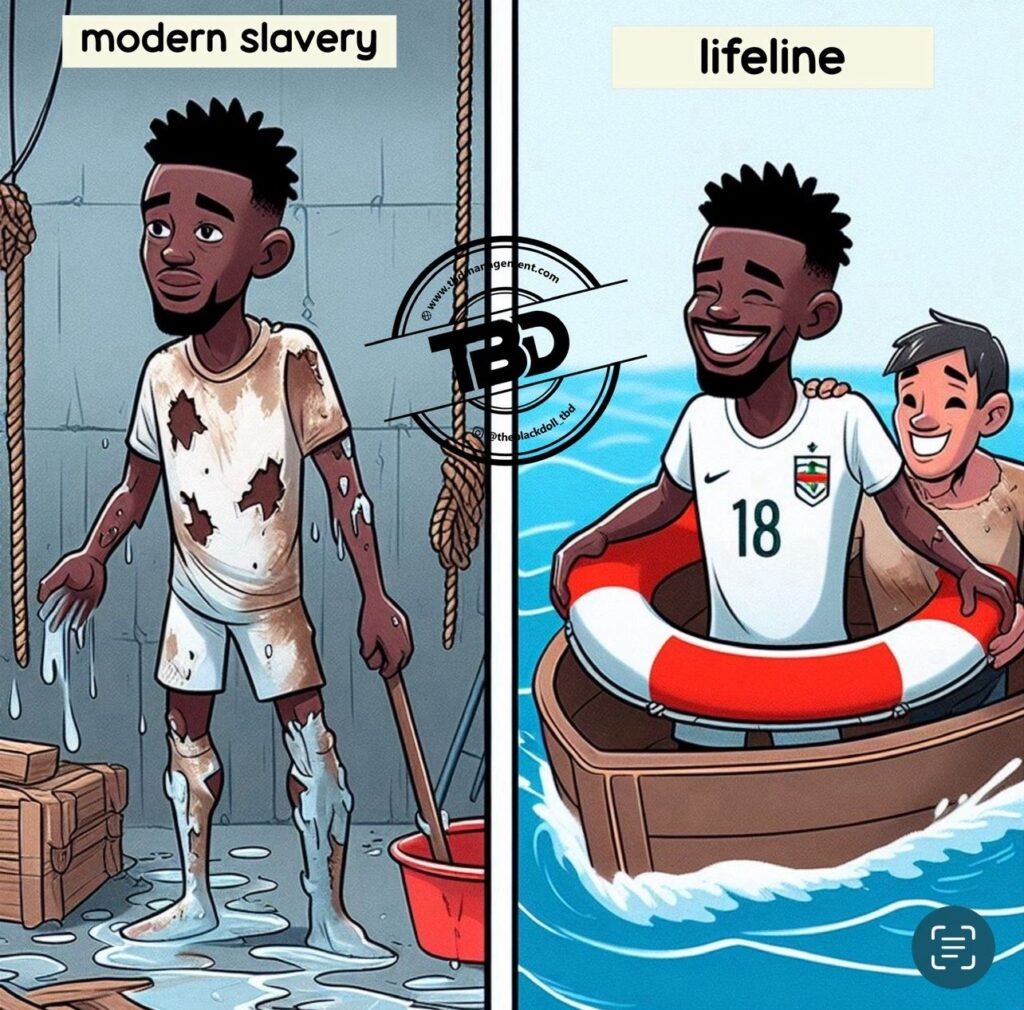Third Party Ownership (TPO) – PART TWO
Modern slavery👮🏼♂️or a Lifeline 🛟
To help us answer this question let’s examine two hypothetical scenarios of simple TPO agreements (an advantage and a disadvantage):
*** SCENARIO ONE *** ✔️
A small academy in Senegal with talented players, but limited funding enters into an agreement with a third party investor to cater for the training and development needs of a 16 year old player in exchange for 60% of the player’s economic rights. Basically, everything the player needs – football boots, feeding, accommodation, flights, visa applications, pocket money, etc will be covered by the investor whilst the academy’s contribution is training the player and giving him exposure. 💰💰💰
Three years later (following an investment in the player of €10k) the player is scouted by a club in Belgium. The club is willing to pay €300k for the player’s economic rights. The academy receives €120k, the investor receives €180k and the player gets a dream move, a decent salary and a call-up to the Senegalese U20 national team. It’s a Win-Win-Win ! 💰+💰+ 💰⚽️
But what happens if there isn’t a transfer fee in that initial transfer? Those that operate in the African market know that this is a very common occurrence. Majority of the time, there is no transfer fee but instead, there is an agreement between the clubs to share the fee from the second transfer (and sometimes even the third) which is known as a sell-on fee.
So let’s assume there was no transfer fee in our scenario above, but there was a 30% sell-on fee for the Senegalese academy in the transfer agreement to the Belgian club. After two seasons in Belgium, a club in Germany shows an interest and the player is transferred for €1m. €300k is sent to the Senegalese club of which €180k goes to the investor. Not bad for an investment of €10k and most importantly the player has a career.
This is why many call it a “LIFELINE”.
Imagine how different this player’s story would have been without TPO.
Unfortunately, there are some investors that are greedy and exploit the process as seen in scenario two.
*** SCENARIO TWO *** ❌
Same scenario as above, however, after the three years of playing with the academy, the player is scouted by two clubs, one in Belgium and one in another African country. The Belgian team presented a very good training and career progression plan for the player, but was only willing to pay €300k whereas the African team has offered €700k 🤑.
The academy owner insists he wants the player to go to Europe, but the investor (as majority shareholder) has decided he is going to the “highest bidder”.
The player travels to his new African club, the club and investor get paid, but the player’s career progression is stunted 😔😭.
This is why it’s been referred to as “Modern Slavery” or trafficking in human beings…
What are your thoughts on TPO?
—
To enjoy the full benefit of this post and some interesting comments, you can also view it on LinkedIn:


One Response
Very Interesting – I had this same thought “modern slavery” when I learned about African players coming to the states who were ‘owned’ by a team. The players did not have say in their process. It made me think. It made me research. And now I read this and I see more depth.